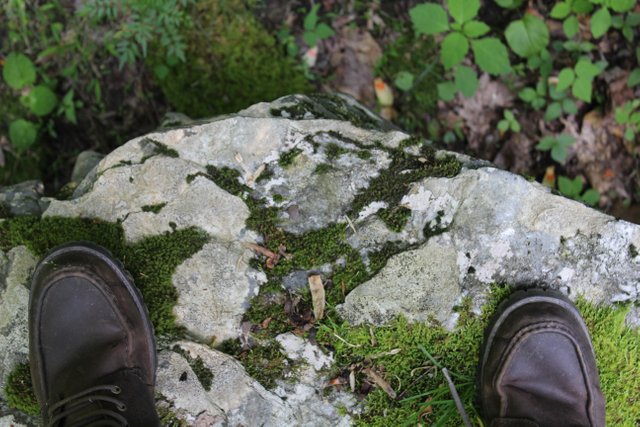
Second only to learning how to commit, learning when to quit is crucial to the development of any skill. That might sound pessimistic, but it isn't. Everyone needs to have a filter. The way of things just is that most of your ideas aren't ones you want to follow to their end. No one thinks at the level where all of their thoughts are great concepts. Someone like that would not be a genius, but an omnipotent god. Hopefully, that's none of us. So assuming that we are beings with flaws, it follows that one of the most important things for us to be able to do is find faults.
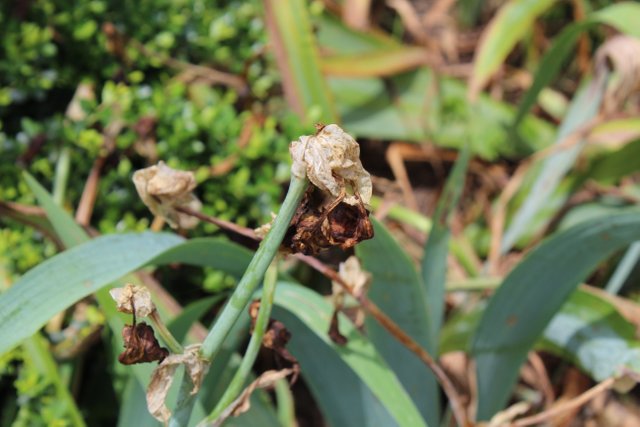
Quitting shouldn't be reserved for when the boat breaks in half. When you look to critique your own work, you should be too harsh, and have an almost too strict criteria for what you'll work on. Your time, everyone's time, is a precious finite resource. Don't wait for the oven to be on fire to pull out the meal, if you have a project you love which only displays half your talents but all your flaws, that's not a project you want to commit to. Good ideas do not always lead to good results, nor do they excuse poor ones. Similarly, even if a project that you're uncomfortable doing will be a good display of your talents, it still might not be worth it.
Learn to say no to yourself and others for the sake of your quality of work.
This isn't to say that everything you need to do is great, but if you're a photographer that loves to take photos of birds, don't let friends start throwing you around weddings. If you don't like to photograph people, it won't go well. Yes, all practice is practice, but sometimes practicing is a waste of time. You can't always be building your skills up, sometimes you need to put out. You need to make projects you want to make, that your talent wants you to make. Nikolai Gogol warned us with his tale of the portrait, if you stick to letting the fashions of the day chose what you create, your skills will wither and you will waste your potential.

Learning to walk away from things you don't want to do is one of the most liberating lessons in life. Of course this isn't good to do when your paraplegic mother asks you to help her out with moving, but it's a great practice for getting away from letting your friends throw you around and getting more in tune with what you want to do. The issue with many artists and creators is that they don't know their dreams well enough, so they will accept work on projects that don't represent their talents or passions fully. This isn't a bad thing to do morally, but it is a lazier way to live life, one that doesn't help you get that deeply involved with your passions.
Settling is quitting, only it's quitting on yourself.
It's fine to take the temporary jobs between periods of working on your passions, but don't fall into that job. Don't settle for what isn't what you want to do, that's how you end up doing what you don't want to do. So not only is important to keep on guard from falling into things that you don't want to do, doing things you don't mind doing might actually be a worse threat. These can range from shitty dead end jobs, to that novel about that teenage girl who finds a wolfboy that you could write, but aren't really too sold on.
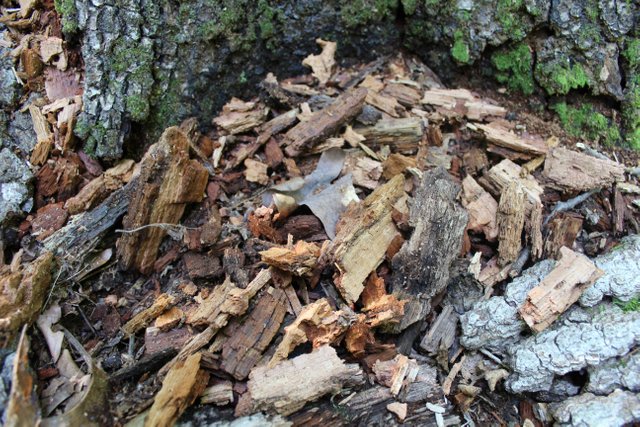
Don't nail yourself to the projects you're mildly into. I've seen a lot of novelists in particular throw around books that they don't even really want to talk about or reread. Doesn't that seem like a red flag, at least a little bit? So many of these have been first time novelists too. Your first project is rarely good. Almost everyone in the creative community scraps their starter work. Please consider how unlikely it is you will be the exception if you plan to fling your first works around. It's cool to share amateur works, but don't champion them. The reason for this isn't because I don't want to see them. It's because:
Sharing underdeveloped projects will hurt your reputation and obscure your talents.
You shouldn't scrap the early stuff for your audience's sake alone, but so that you can figure out what you want from art, what you want to do with your medium, what your point is, and how you want to express it. Once you have all of that figured out, and a few projects under your belt, I promise you that you can construct a beautiful debut. More importantly, you can create something that does justice to your talents, philosophy, and feeling. That's much better than a first project being your first impression.

But not all projects have to be perfect, obviously. This isn't to say that everything you put out needs to flawlessly express your ideas and represent your ideals. What it is trying to do is promote the often forgotten art of pruning. The editor is a necessary figure in every medium, but we can do a robust amount of editing for ourselves, and thus greatly improve our craft, if we just slow down, do more work, and pay more attention. Diligence and dedication get rewarded, not because of justice or fairness, but because they lead to the development of great talent, and people want to use great talent, so they'll pay for it.
Once your work is good enough others will first find, then flock to it. Skill is noticed.
Unless you have the habits of Kafka, you don't need to focus too much on your ability to share your own work. One of the greatest risks of oversharing is finding a vapid demographic that enjoys your aesthetic, but doesn't hear any of the points you were trying to make. If you focus more on marketing than you do honing your skills, this is likely what will occur. Instead the focus should be on building an organic community that appreciates your work for your vision, and what you want to communicate.
That will happen slowly, but it will give you a greater and more authentic ending than any other path. You don't want to sell units as an artist, you want to make connections. You want to feel that transcendent sense of empathy when someone else engages with you through your art. It's tough and feels almost entirely like an uphill battle, but it's worth it.
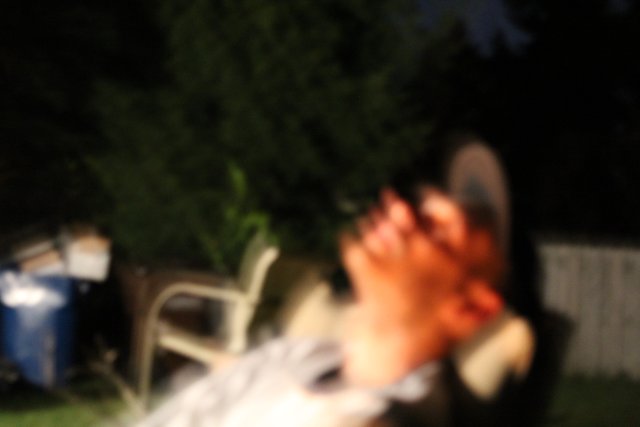
This was written by Carlyle: writer, photographer, and more with the collective /4$(lean4sale). In 2 weeks he will be leaving his native state to start a new life in California. You can find some of his work on the lean4sale website, and you can find him on twitter @karhlyle.
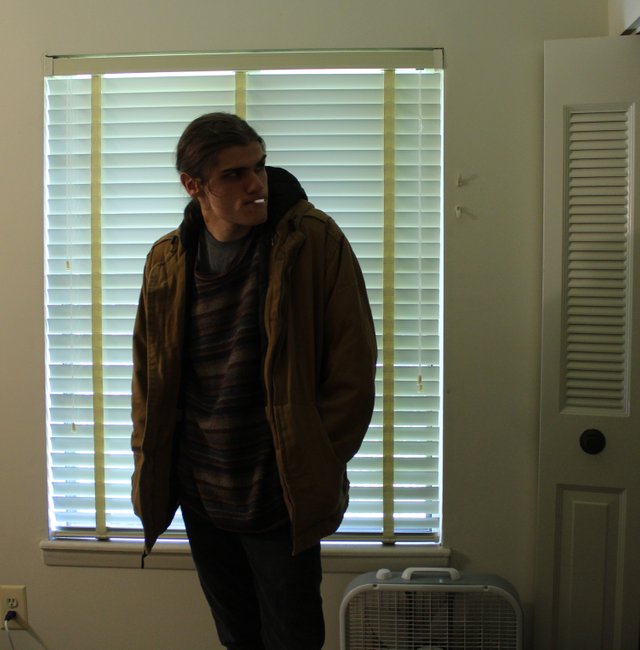
I like the pictures
Have Fun in Cali!
Good Advice here!
Downvoting a post can decrease pending rewards and make it less visible. Common reasons:
Submit
Thanks so much, and I really look forward to the move!
Downvoting a post can decrease pending rewards and make it less visible. Common reasons:
Submit
Hi @carlyle
I agree with you, one need to know when to quit. I also agree that when your quality is good people should flock to your work.
I however don't think this applies to steemit, I think this post of yours is EXCELLENT, but will it receive the attention it deserves???
Downvoting a post can decrease pending rewards and make it less visible. Common reasons:
Submit
Well the thing is it's true on a larger scale, but not necessarily in every instance. The philosophy behind it is more that if you paint and stick with it for years, maybe a lot of your work will go unnoticed, but eventually people will become keen to it. So this post might go unnoticed, but, at least hopefully/ in theory, projects that I've done like this will eventually help me get a reputation as a pleasant and competent writer. I deeply appreciate your compliment on the quality of my post, thanks for commenting :).
Downvoting a post can decrease pending rewards and make it less visible. Common reasons:
Submit